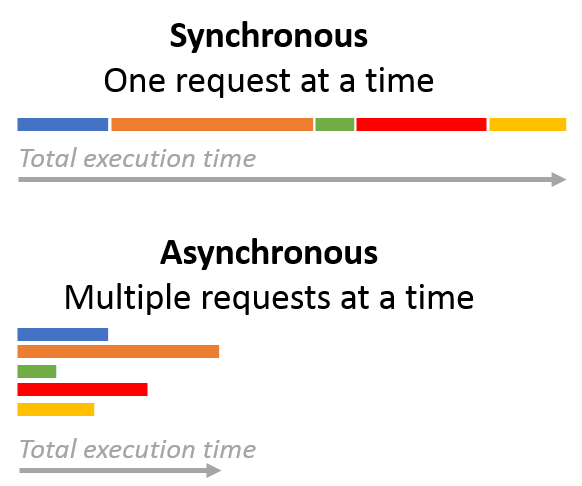Tips and tricks to get the most out of your JavaScript
- Loops — Avoid them if not needed
- Minimize DOM access in order to have a more responsive page
- Asynchronous Programming
- Detection of Problems
- Scoping of Variables
- Event Delegation
- Object Caching
- Limiting Memory Usage
- JavaScript Delay loading
- Say NO to Memory Leakages
- Use Various Optimizations
JavaScript has become one of the leading scripting languages. JavaScript is everywhere — on the client-side as well as on the server-side. It is also one of the most popular languages used on GitHub.
Loops — Avoid them if not needed
Looping in JavaScript is not considered a good thing since it puts extra strain on the browser. The amount of code inside the loops should be as small as possible. The less work we do in the loop the faster will be our loop. Moreover, we can also adopt simple tricks like, rather than reading the length at each iteration of the loop, we can store the array’s length in a different variable. This could go a long way in optimizing our code and run things in a more efficient manner.
Minimize DOM access in order to have a more responsive page
Any interaction that takes place outside the JavaScript native environment results in a significant amount of performance lag and unpredictability. For example, if the host browser is interacting with the DOM object multiple times outside the environment, it will cost us performance since the browser has to refresh every time. To avoid this, we should be minimizing DOM access. There are a few ways by which we can achieve this. For example, we can store references to the browser objects, or we can decrease the overall DOM traversal trips.
Asynchronous Programming
In any application, we need to make several internal calls to multiple APIs to fetch data. One way of doing this is to have separate middle-ware for each functionality. However, JavaScript is single-threaded and has lots of synchronous components. These components have the capability to freeze the application.

JavaScript’s async.js feature comes handy in these kinds of scenarios. It helps in the efficient management of asynchronous codes. This causes async code to get pushed to an event queue where it fires after the execution of all other codes. However, even with the JavaScript’s async feature, there’s still a possibility of using an external library that could inadvertently lead to synchronous blocking calls. And this could have an adverse effect on the overall performance of the application.
Hence to tackle these in the best way, we should always use asynchronous APIs in our code. However, we also need to keep in mind the intricacies of async programming, since it is often challenging for the freshers.
Detection of Problems
Lighthouse is a tool widely used for web pages. It helps in accessibility, audit performance, SEO, and other best practices. Similarly, Google PageSpeed is built to help JavaScript developers to understand areas of improvement and performance optimizations of a website.
In Chrome’s main menu, there’s an option of ‘More Tools’ which shows you the memory and the CPU usage by each tab. We can also use the Performance view in either Chrome or Firefox to carry out even more detailed analysis. With this we are able to analyze various metrics, for example:

If we want to dive deeper, we can use the Navigation Timing API. It provides data that can be used to measure the performance of a web site.
Scoping of Variables
Whenever we call a certain function, the variables that are used to define that function are stored inside. Variables can be categorized into two types.
- Local variable: — Variables that are defined only within themselves.
- Global variable: — Variables that are used throughout the script.

During function call, the JavaScript compiler does a scope lookup of the variables that are being used. With the increase in the number of scopes in the scope chain, there’s also an increase in the amount of time taken to access variables that are outside the current scope.
This is the reason why the engine takes a long time to access a global variable as compared to that of a local variable. This means if we define most of the variables locally, the time required for the variable search will decrease rapidly. Eventually, it will boost the overall performance of the application.
#javascript #programming #web-development #developer
